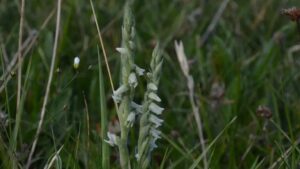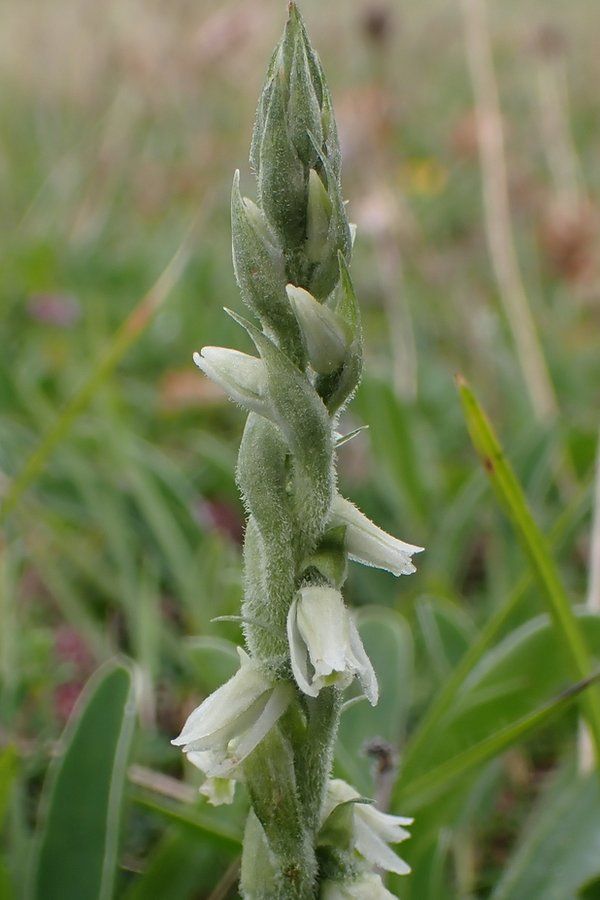Courtesy of the BBC and Lee Maginnis eagle eyes

An orchid species has been discovered for the very first time in Northern Ireland by a young botanist while out walking with his mum.
Jake Dalzell, who is a plant ecology student at the University of Cambridge, was out with his mum Judith in Killard National Nature Reserve in County Down.
The pair said they were astounded to come across the first autumn lady’s-tresses ever seen in the area.
Autumn lady’s-tresses are an orchid with a delicate spiral of flowers. It flowers in late summer and has pure-white flowers which spiral up the stem. The blooms are sweetly-scented, with a fragrance that has been likened to honey, almonds, coconut or vanilla.
The orchid has been spotted in areas of Sligo and Dublin before in the Republic of Ireland, but has never before been located in Northern Ireland, according to local botanists.
Jake, who is a member of the Botanical Society of Britain and Ireland (BSBI), was out searching for Frog Orchids, when his mum stumbled upon something that surprised him.

The third-year student said he was astounded to find the species that he has only ever seen before in photographs.
“I knew I’d never seen this plant before, and that it had never been seen in this part of Ireland,” Jake said.
As Jake and Judith searched excitedly, they found more and more of the species, which grows no higher than 15cm tall amongst the grass.
‘A significant discovery’
The BSBI recorder for County Down, Graham Day, said he was thrilled to hear of the find.
He said this was a significant discovery as it is most unusual for a new native species to turn up in your patch, especially an orchid.
Killard National Nature Reserve, which is the site of the discovery, is on the Killard Peninsula, where Strangford Lough meets the Irish Sea.
The nature reserve is a popular spot with local botanists, known for its wealth of orchid species and coastal plants.
Jake said that the site is extremely well-managed, with careful attention paid to grazing, and maybe that is the secret as to why the new species was able to colonise.
BSBI’s Ireland officer Bridget Keehan said the discovery was impressive given the extensive recording history of the area.
“This proves that despite 20 years of intensive botanical recording across Ireland for our recently published Plant Atlas there are still exciting discoveries to be made, even at well-visited sites,” she said. “Anyone can learn about plants, find out about their environment, and help us understand more about nature in Ireland.”
